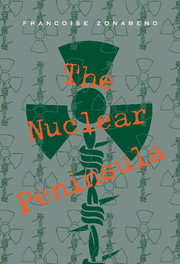Conclusion: The ultimate subject: man
Published online by Cambridge University Press: 15 January 2010
Summary
It may seem strange to end a book on the nuclear industry without taking up a position either for or against the exploitation of this form of energy. That, however, has not been my purpose.
I have tried in the foregoing chapters to capture something of the way in which the men and women who live alongside or work in such high-risk establishments relate to the phenomenon of radioactivity, the dangerous effects of which can neither be seen, nor felt, nor heard, and which they are led, purely through the medium of words or by resorting either to silence or to flights of fancy, to situate within such grids of interpretation as they have at their disposal.
The topic is a vast one, and I have certainly not said all that there is to be said on it. Indeed, I have chosen to trace a particular course, namely to focus attention on the turns of speech (and of silence), the procedures and strategems, the tactics and practices – in short – the whole spectrum of methods by which the people of la Hague deal with le nucléaire.
In so doing I have broken with an entire school of socioanthropological research, particularly in the United States, that has in essence set itself the task of measuring the influence of social structures on the perception of the many technological risks so characteristic of our modern societies with a view to finding improved ways of controlling and regulating them.
- Type
- Chapter
- Information
- The Nuclear Peninsula , pp. 121 - 128Publisher: Cambridge University PressPrint publication year: 1993

